SHARE
NewsVest:
Expert Discussion: Political and Security Influences Continue to Shape Relations in the Western Balkans
Political, media and economic influences of certain actors continue to strongly define the region’s security landscape, concluded participants of the workshop on security and stability impacts in the region, held on 23 October 2025, at the Civic Energy Center (CEC) in North Mitrovica.
The discussion was substantial and dynamic, as participants exchanged views on current political and security challenges in the region, as well as on opportunities to strengthen regional cooperation, institutional resilience, and transparent governance. A particular focus of the debate was the process of normalising relations between Kosovo and Serbia, along with various forms of influence through media manipulation, disinformation, and political pressure, which negatively affect dialogue and stability.

Participants emphasised that, due to such turbulent relations, there is an increasing need for international mediation—especially in reviving socio-political dialogue and revitalising talks within the Brussels process. This, they noted, would create a foundation for meaningful and long-term progress in the normalisation process, with a positive impact on broader regional stability.
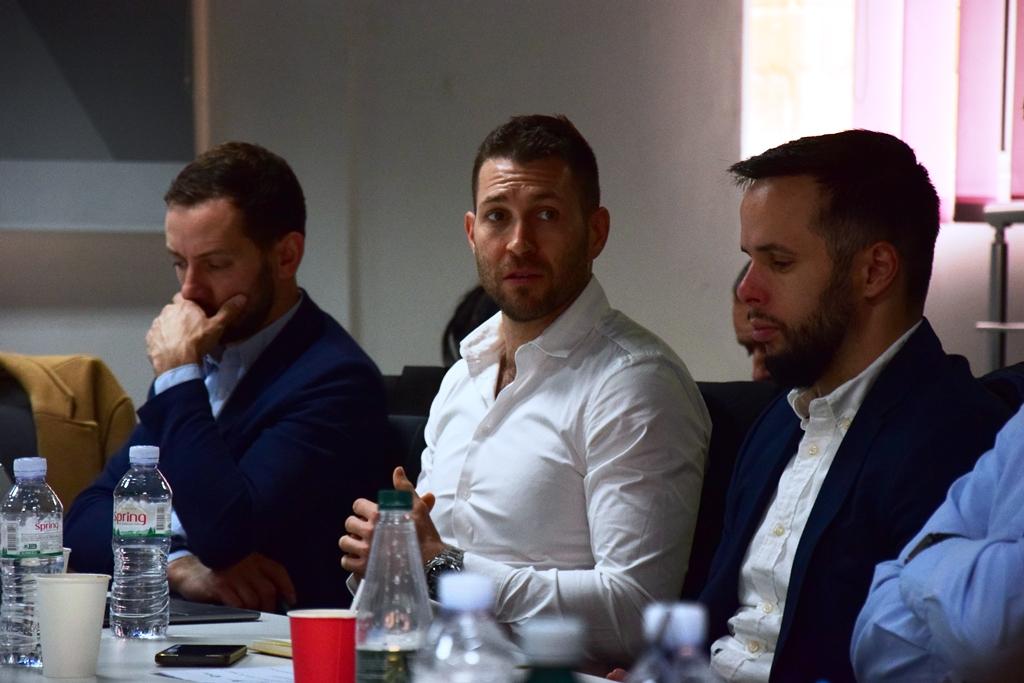
It was concluded that such initiatives contribute to a better understanding of contemporary security challenges and to strengthening democratic resilience and stability in the Western Balkans, while also fostering connections between regional and European actors in their joint work toward sustainable peace and cooperation.
The workshop was part of the project “Building the ‘Serbian World’: Serbia’s Influence on Security and Stability in the Western Balkans,” implemented by civil society organisations from the region and Central Europe with the support of the International Visegrad Fund. The project runs from June 2025 to March 2026 and brings together civil society partners from Serbia, Kosovo, Montenegro, Bosnia and Herzegovina, Poland, and Slovakia.
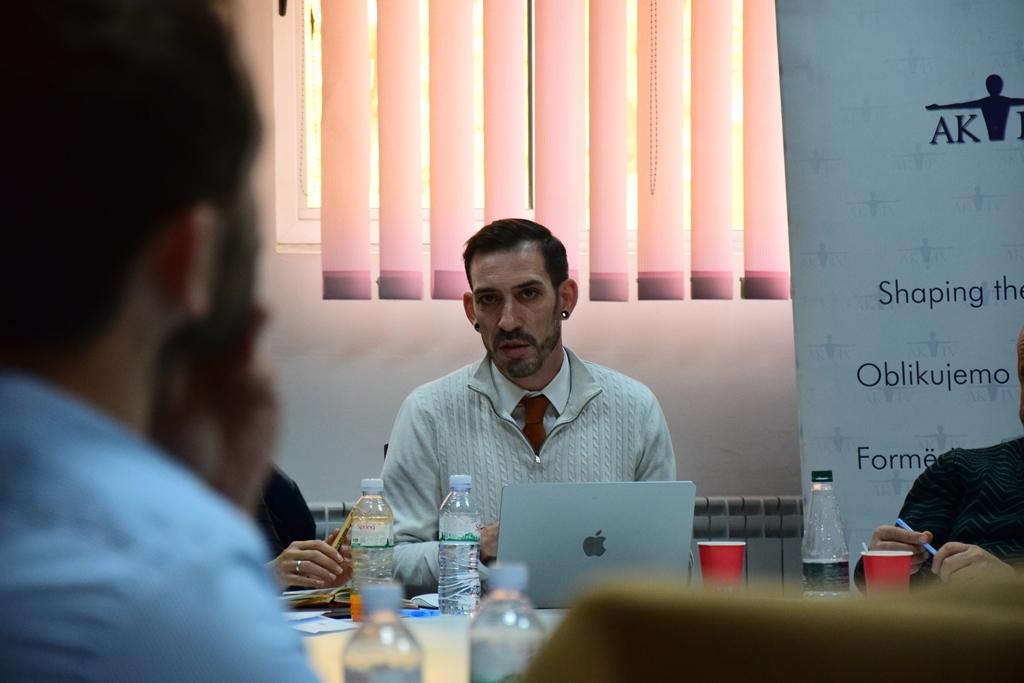
The lead organisation in Kosovo is NGO Aktiv, in cooperation with the Belgrade Centre for Security Policy (BCSP), Digital Forensic Center (DFC) from Montenegro, Foreign Policy Initiative BH (FPI BH) from Bosnia and Herzegovina, Res Publica Foundation from Poland, and BalkanViews from Slovakia.
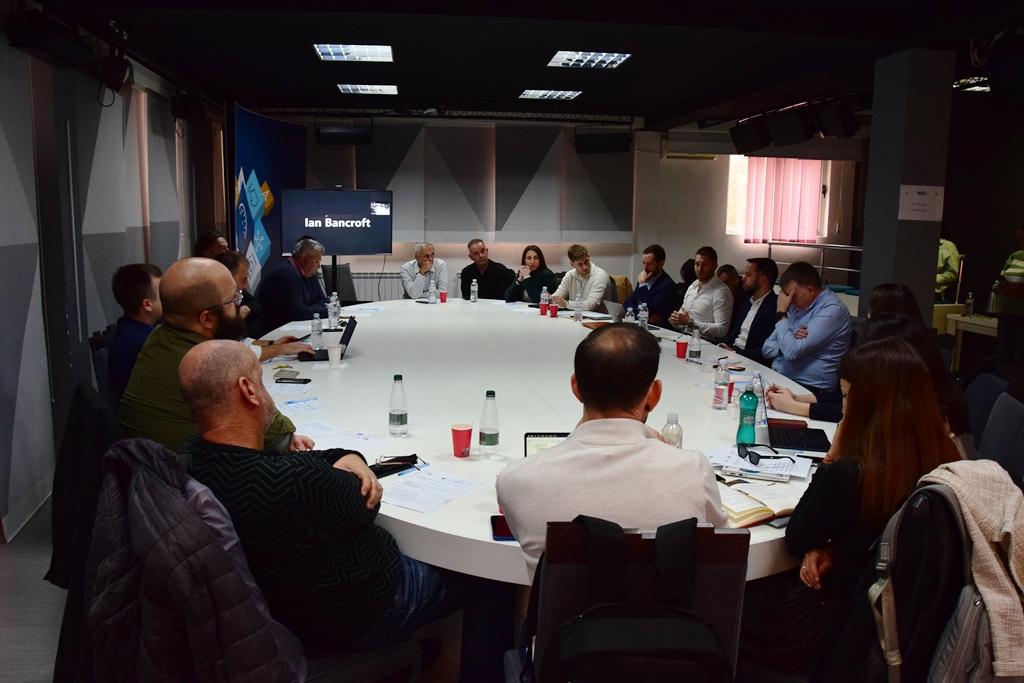
This project is co-financed by the governments of Czechia, Hungary, Poland, and Slovakia through Visegrad Grants from the International Visegrad Fund. The mission of the fund is to advance ideas for sustainable regional cooperation in Central Europe.

Project description:
RELATED
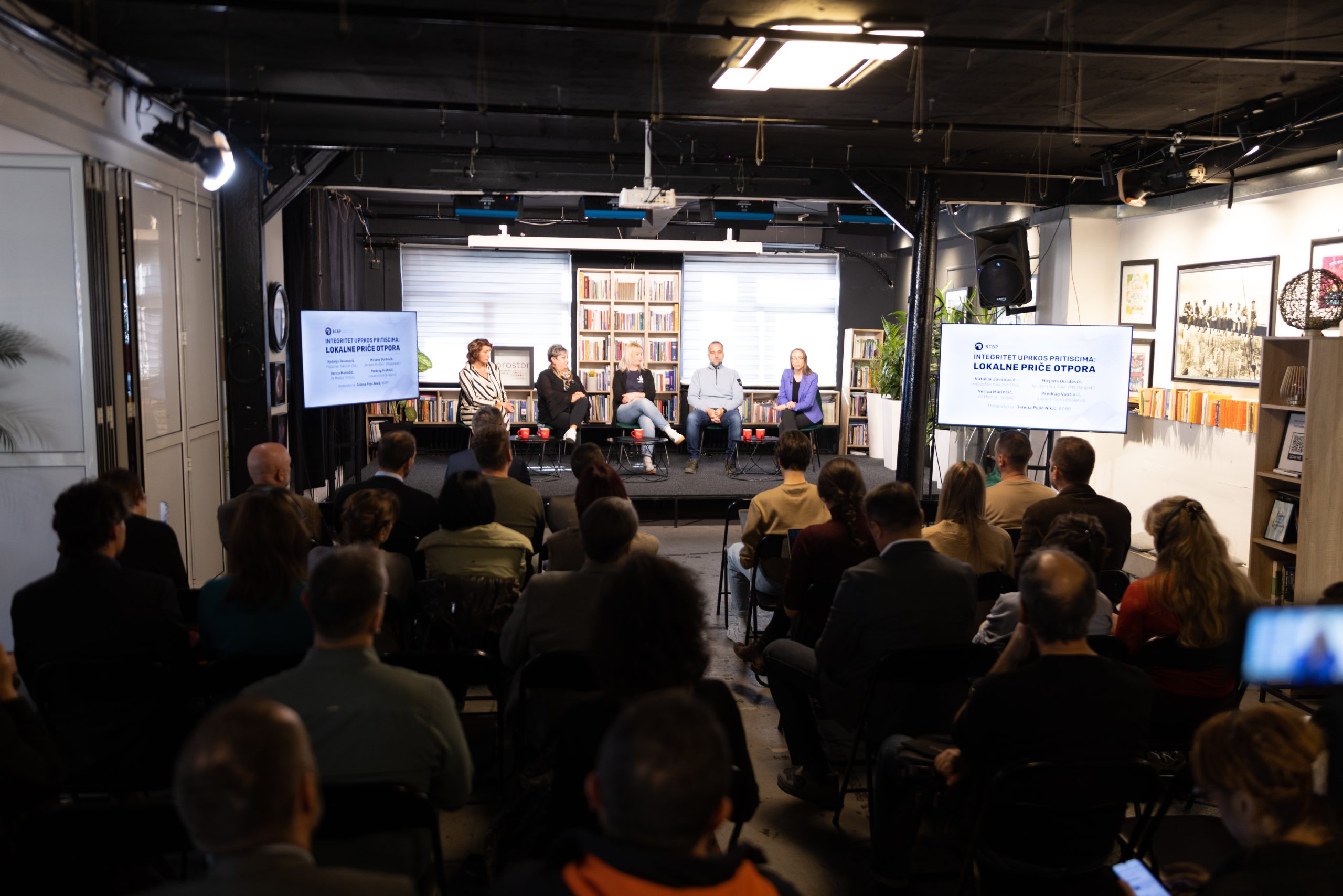
Date: 07.11.2025.
Author: Belgrade Centre for Security Policy
The Belgrade Centre for Security Policy (BCSP) has launched the Integrity Network initiative, bringing together respected individuals from various spheres of society—police officers, professors, journalists, lawyers, and activists—with the aim of monitoring, documenting, and raising public awareness about cases of state capture at the local level.
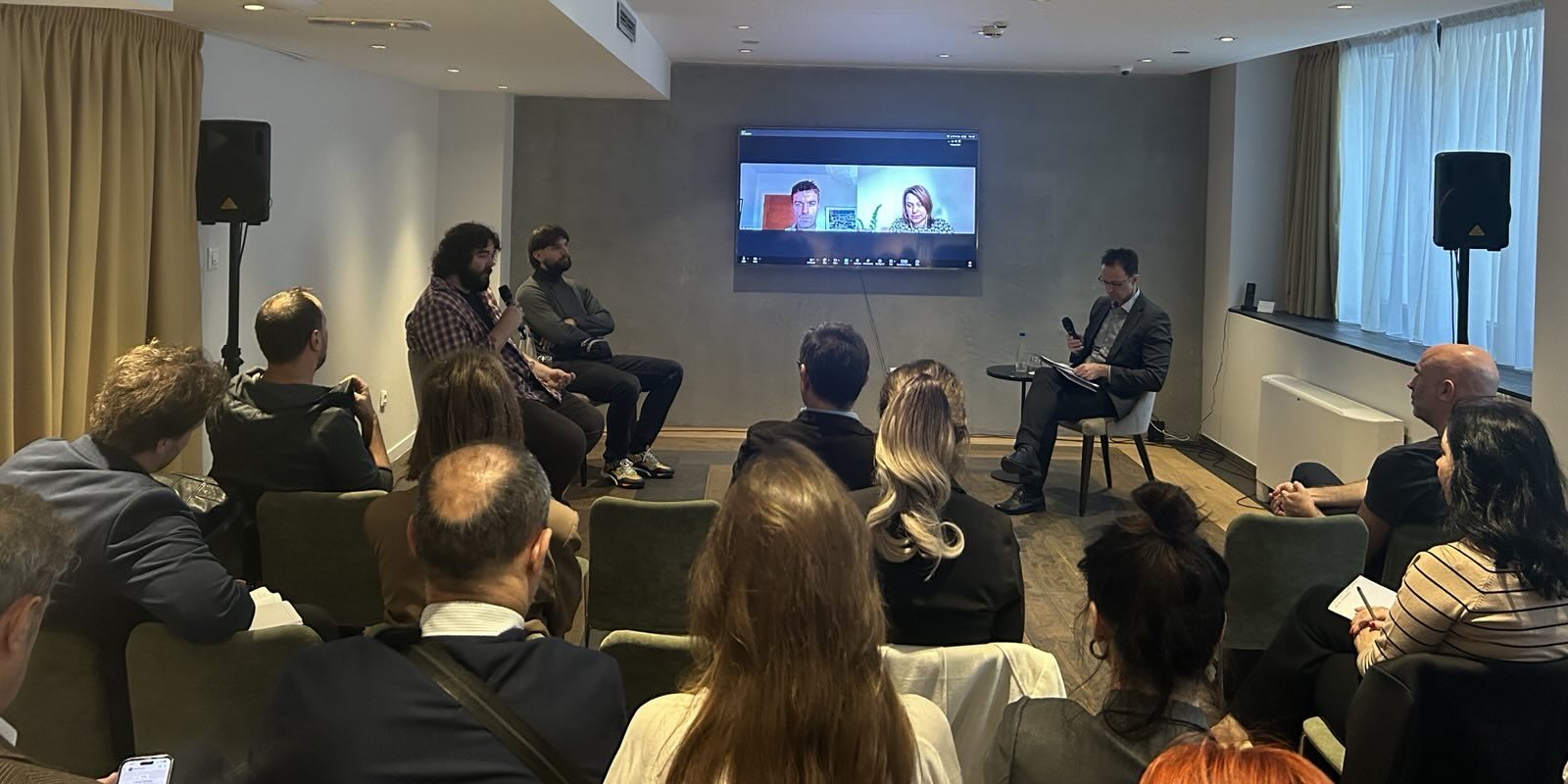
Date: 04.11.2025.
Author: Belgrade Centre for Security Policy
At the panel discussion “Freedoms Under Pressure: Civil Society and Digital Oversight in Serbia and Abroad”, organised by the Belgrade Centre for Security Policy (BCSP) on 31 October in Belgrade, speakers warned that digital surveillance and spyware use are rapidly becoming tools of political control in Serbia and across Europe, posing severe risks to human rights and democracy.
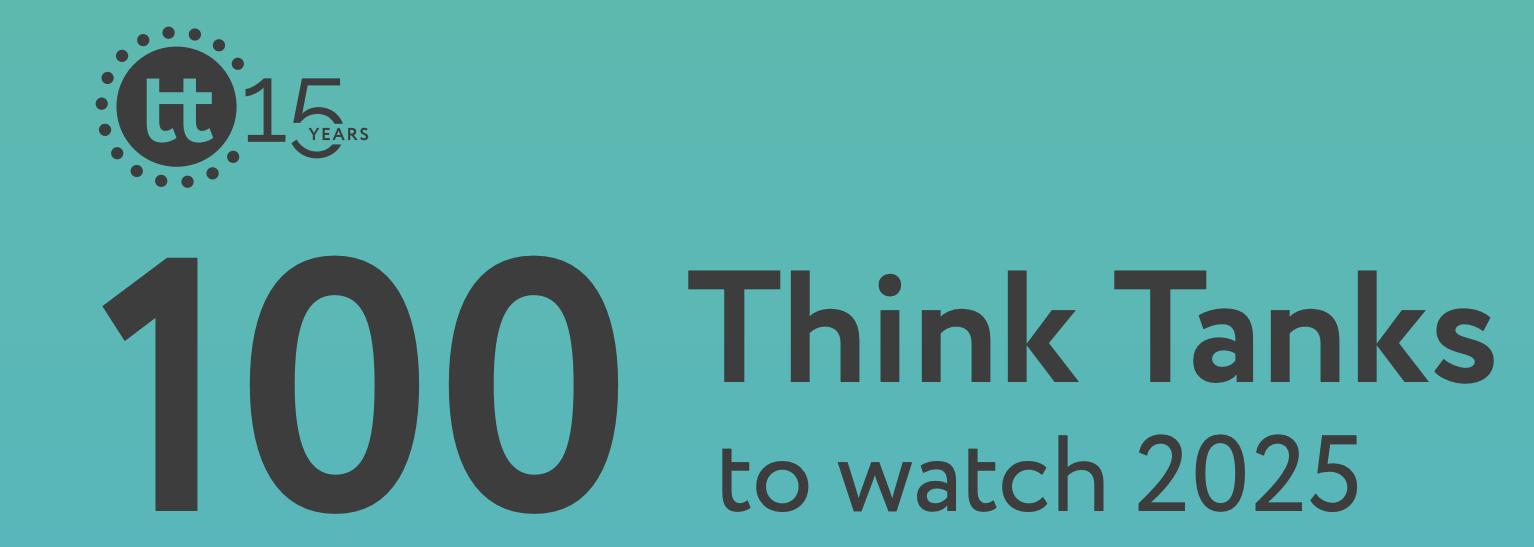
Date: 28.10.2025.
Author: Belgrade Centre for Security Policy
The Belgrade Centre for Security Policy (BCSP) has been selected as one of the 100 Think Tanks To Watch 2025, a peer-driven recognition by the global On Think Tanks community.


